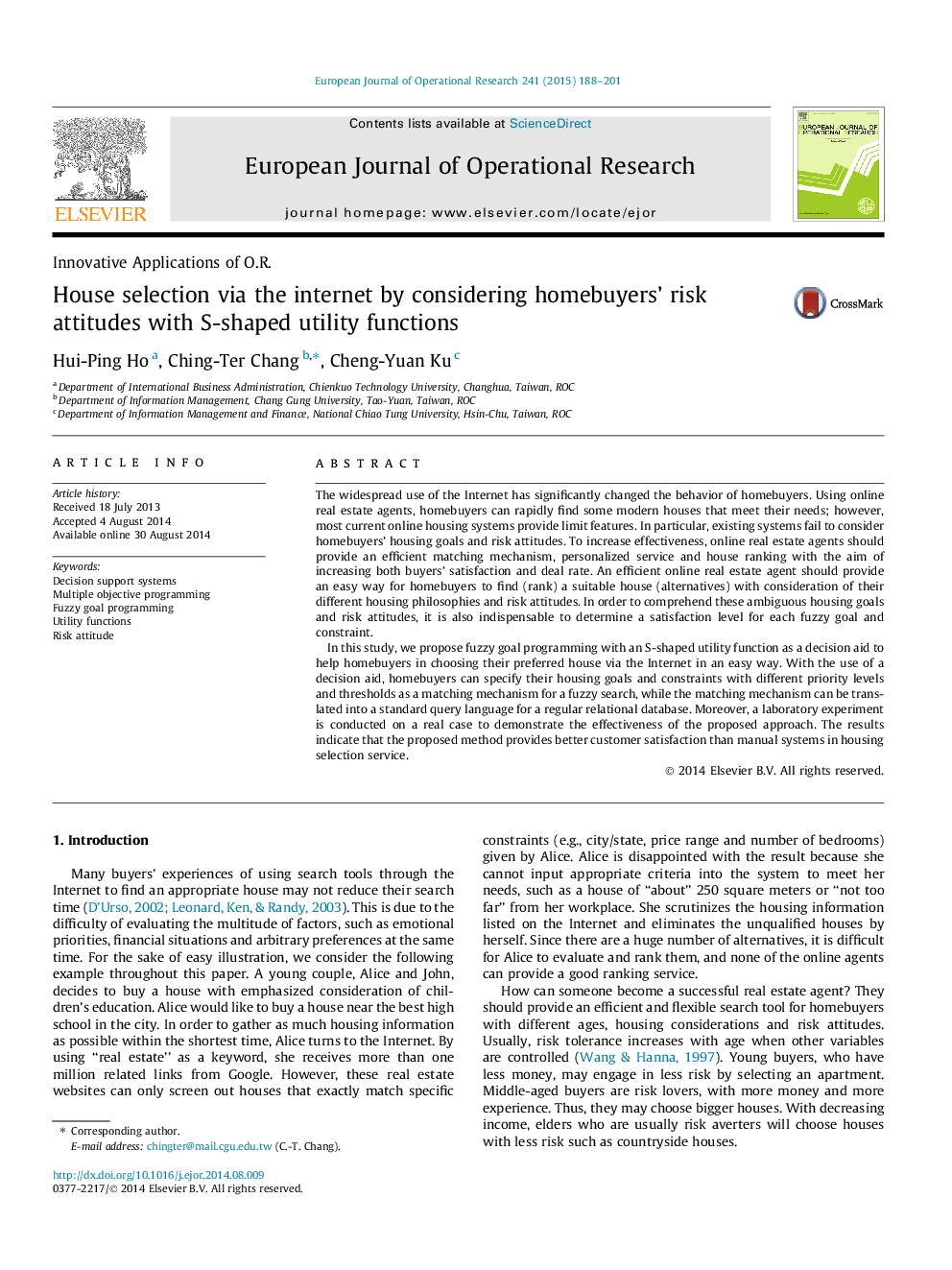| Article ID | Journal | Published Year | Pages | File Type |
|---|---|---|---|---|
| 479613 | European Journal of Operational Research | 2015 | 14 Pages |
•A new method for house selection is proposed.•This study considers homebuyers’ risk attitude with S-shaped utility functions.•A laboratory experiment is conducted on a real case to demonstrate the effectiveness of the proposed approach.
The widespread use of the Internet has significantly changed the behavior of homebuyers. Using online real estate agents, homebuyers can rapidly find some modern houses that meet their needs; however, most current online housing systems provide limit features. In particular, existing systems fail to consider homebuyers’ housing goals and risk attitudes. To increase effectiveness, online real estate agents should provide an efficient matching mechanism, personalized service and house ranking with the aim of increasing both buyers’ satisfaction and deal rate. An efficient online real estate agent should provide an easy way for homebuyers to find (rank) a suitable house (alternatives) with consideration of their different housing philosophies and risk attitudes. In order to comprehend these ambiguous housing goals and risk attitudes, it is also indispensable to determine a satisfaction level for each fuzzy goal and constraint.In this study, we propose fuzzy goal programming with an S-shaped utility function as a decision aid to help homebuyers in choosing their preferred house via the Internet in an easy way. With the use of a decision aid, homebuyers can specify their housing goals and constraints with different priority levels and thresholds as a matching mechanism for a fuzzy search, while the matching mechanism can be translated into a standard query language for a regular relational database. Moreover, a laboratory experiment is conducted on a real case to demonstrate the effectiveness of the proposed approach. The results indicate that the proposed method provides better customer satisfaction than manual systems in housing selection service.
